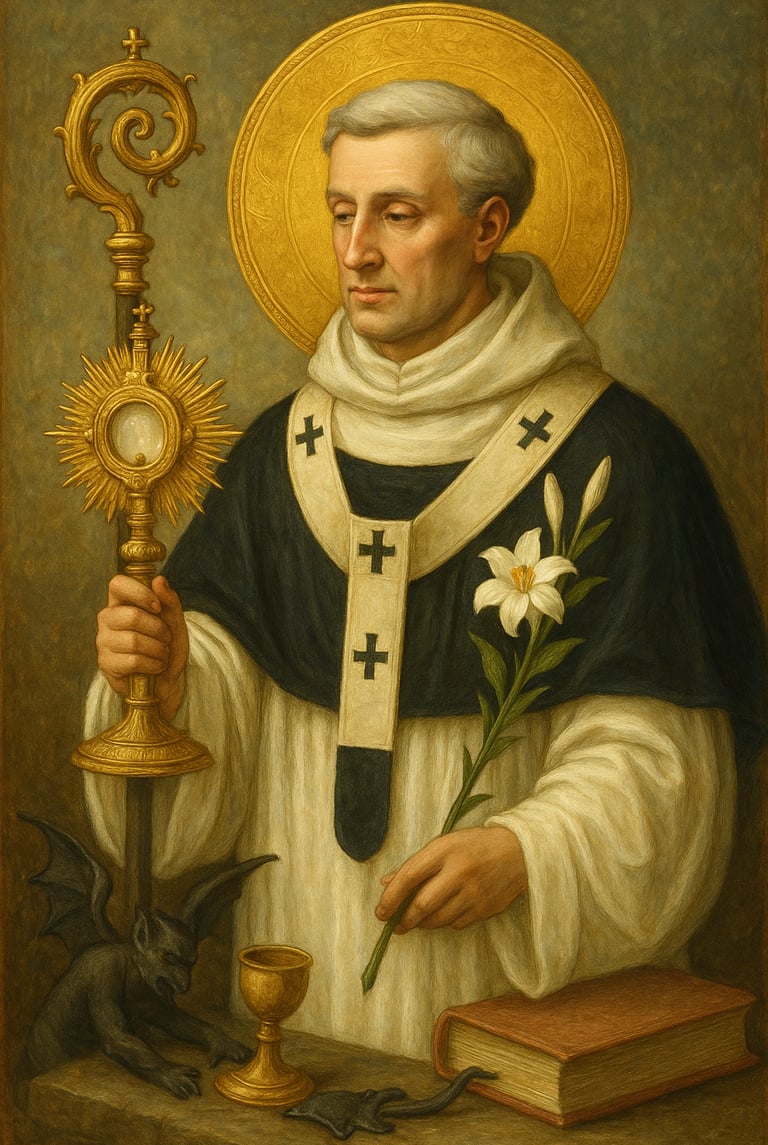St. Norbert of Xanten (c. 1080–1134)
Founder of the Norbertines
Halo & Light Studios
6/6/20252 min read


Click Link for a reel of Daily Dose of Saints and Faithful Art:
https://youtube.com/shorts/A6vb9Bn1lwM?si=tAcmdLEPNNxbAIwn
Few saints embody the drama of conversion like St. Norbert of Xanten. Born into nobility and once consumed by ambition and worldliness, Norbert’s life took a radical turn after a near-fatal lightning strike knocked him off his horse. That moment became a spiritual awakening—a divine call to leave behind comfort, power, and prestige in order to follow Christ more closely.
Norbert responded wholeheartedly. He renounced his wealth, embraced a life of asceticism, and was ordained a priest. From that point forward, he became a bold preacher, tireless reformer, and passionate defender of the Holy Eucharist—especially during a time of growing heresy and doctrinal confusion.
In 1120, he founded the Order of Premonstratensians, or Norbertines, at Prémontré, France. This community of canons regular combined a deep liturgical life with active pastoral ministry. Their mission was—and still is—centered on Eucharistic devotion, communal living, and evangelization through preaching and service. Their is motto is, "Prepared for every good work."
St. Norbert emerged as one of the Church’s most outspoken defenders of Eucharistic orthodoxy, particularly against Berengarianism, the heresy that denied the Real Presence of Christ in the Eucharist. Alongside St. Bernard of Clairvaux, he also labored to heal division within the Church, working to defeat the dangerous schism promoted by the anti-pope Anacletus II. Through fervent preaching and unwavering fidelity to the Church’s teaching, Norbert rekindled reverence for the Blessed Sacrament and helped restore a sense of sacred awe for the Mass among both clergy and laity.
Appointed Archbishop of Magdeburg around the year 1125, Norbert continued his mission of reform. He corrected clerical abuses, promoted ecclesial unity, and worked to reconcile political factions—bridging gaps between Church and state with both courage and compassion. Yet at the core of all his labors remained a deep and abiding love for the Holy Eucharist and an unshakable commitment to the unity of the Body of Christ.
Today, his legacy thrives through the Norbertine Order, with communities flourishing across Europe, North America, Africa, and beyond. These canons regular continue to live out his vision through perpetual Eucharistic adoration, Catholic education, spiritual formation, and pastoral outreach. In recognition of his sanctity and enduring impact on the Church, St. Norbert was canonized by Pope Gregory XIII in 1582.
St. Norbert’s story reminds us that no one is beyond the reach of grace—and that conversion is not just a moment, but a mission. In an age that often forgets the sacred, his life calls us back to reverence, reform, and readiness for every good work.
